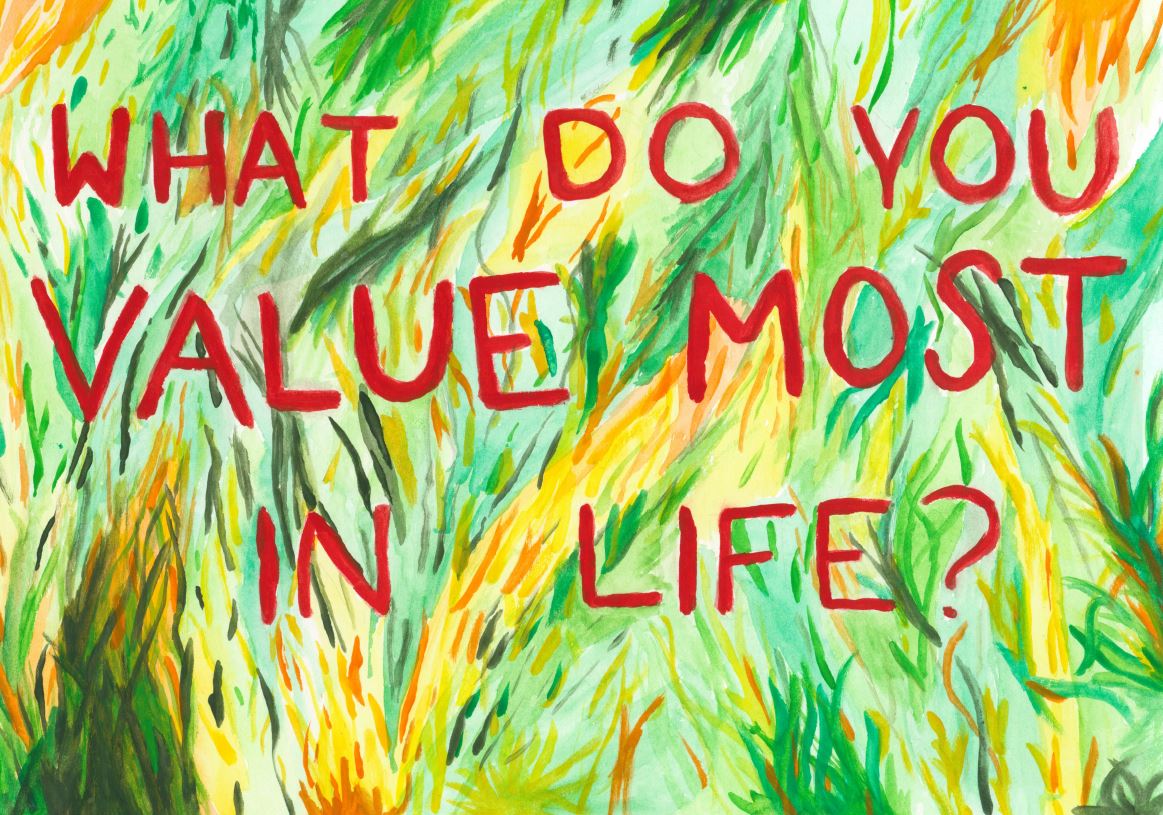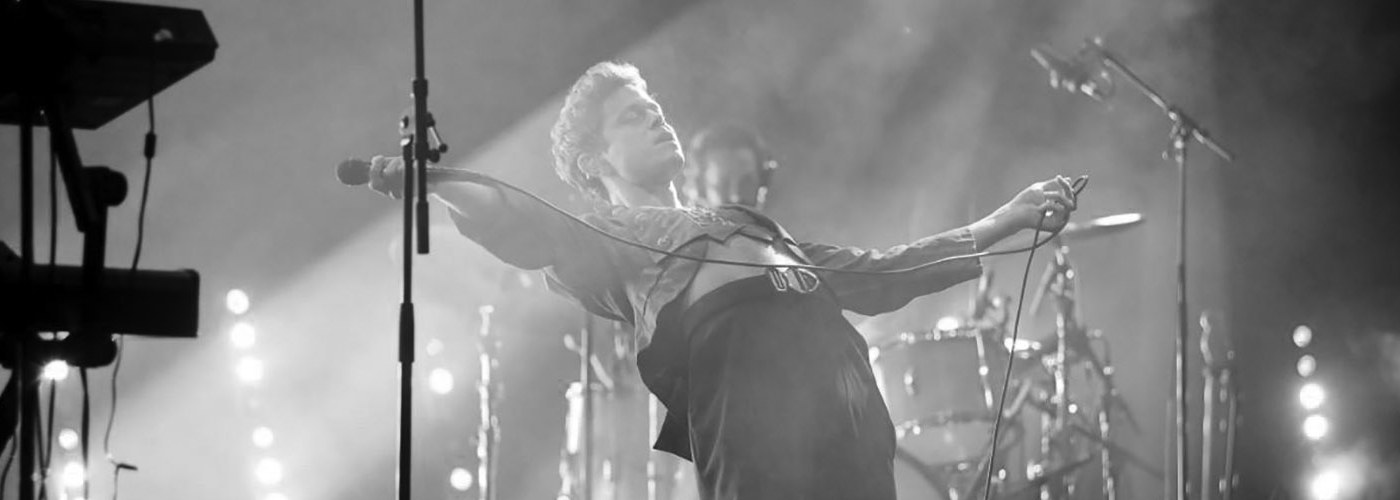
Adalya Nash-Hussein on Music for a Changing Climate
An immersive performance experience designed and performed by the Ad Lib Collective for the 2018 Metropolis New Music Festival, Music for our Changing Climate asked listeners to consider what climate change sounds and feels like. One of our brilliant 2018 Writers-in-Residence, Adalya Nash-Hussien, was there and she captures her thoughts and musings on the concert below.
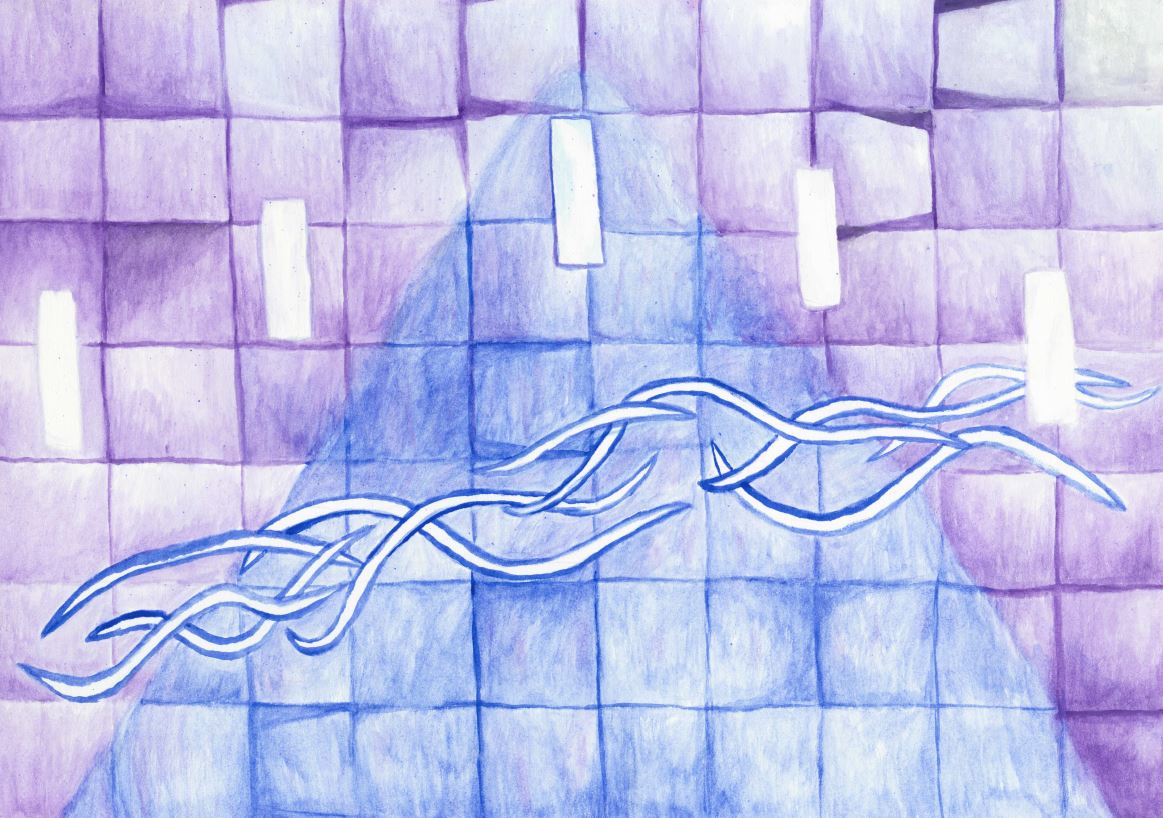
The day after the concert, I am invited to a friend’s sharehouse for brunch and also, apparently, to talk about climate change. The whole thing turns out to be lot more official than I’d expected from her message: ‘anyway would like to see u + talk about the climate lol but yeah if you’re not free tomorrow then we should catch up another time on the weekend ??’
When I arrive, the first person I see is Fiona, who turns out to be a facilitator rather than a friend of anybody else in the house. It’s the third time she’s run one of these, and the first time that it wasn’t for somebody she knew directly. While we wait for the baked eggs to cook, we organise ourselves around a low coffee table and pass around clipboards and questionnaires.
‘Ok, so don’t worry about thinking too hard about any of these… the second question is particularly intense so just, like, lean into it.’
I look down at the second question, What do you value most in life?
Fiona quickly reads through our answers (mine: ‘family/friends??’, another’s: ‘sensuality’). ‘So we ask this basically as a way of talking about how climate change affects absolutely everything. Like, if you care about your family and friends, not to be dramatic, but they could all die.
‘Similarly, looking at this question on the issues you vote along, if you care about, say, job security, the destruction wrought by climate change will affect the economy, which will in turn affect almost every industry. If you care about refugee wellbeing, or even if you’re concerned Australia is taking in too many refugees, we are already seeing climate refugees. You don’t have to be a greenie leftie to vote with the climate.’
------------
For my undergrad, I end up taking a Bachelor of Science and a Diploma of Music on the Violin. I go into my science degree imagining that I will major in a life science, immunology or neuroscience. I find broader anatomy boring and difficult to keep clear in my head—too many organs whose functions overlap, too wide a scale to understand what is happening in any detail—but I like systems, I like putting together the pathways step-by-step.
The Con feels strangely like high school compared to the rest of the university. The cohort is small enough that you quickly grow to at least recognise most people. At first I find it comforting, but it slowly becomes constricting, airless.
A main topic of conversation is how much practice you do, or how much practice you should be doing, or how little work you are doing on your academic subjects because of how much practice you need to be doing. There is a strange disinterest in actually contextualising our practice; an obsession with an instrument, rather than a medium.
I develop a fixation on my hands. My nails must be exactly the right length, I carry clippers in my violin case and bite my nails so often that I know how to chew them to my preferred length and shape. I absent-mindedly touch my left fingertips to my thumb, feeling where they have hardened. Before bed, I carefully moisturise my hands to keep the skin from drying out. At any other time, I hate any hint at moisture on my hands, am constantly rubbing sweat off along the back of my jeans. When I go to the toilet, I try to keep my left hand clean so that I won’t have to wash it and get it wet or, in winter, cold. I build a database of bathrooms with and without paper towel, the only thing that dries my hands properly. They feel like a machine, like maybe they could rust.
------------
I go into the concert hopeful and excited. I am excited because I like chamber music, because I am interested in New Music, because the composers and performers are young and mostly vaguely friends of a friend of a friend. I am hopeful because they are trying to engage with the outside world, with the current political time and space, because their program has been put together with thought and originality.
Early in the performance, I catch a glimpse of one percussionist’s earrings and hone in on them. In classical music’s concert blacks, I like observing the small ways people assert themselves, lip colour, hair ribbons, body hair; hints at a human behind the instrument. The earrings are that shiny, flat texture that glimmers when the light hits it in certain directions and in others is dull, difficult to properly see. Their shape is strange and protruding. I wonder if they’re meant to be coral. I like the way they dance in the light, almost like they’re alive.
After the concert, when I’ve painted the earrings, my partner tells me coral is only that shape when it has already died. To colour it, we have to use dyes.
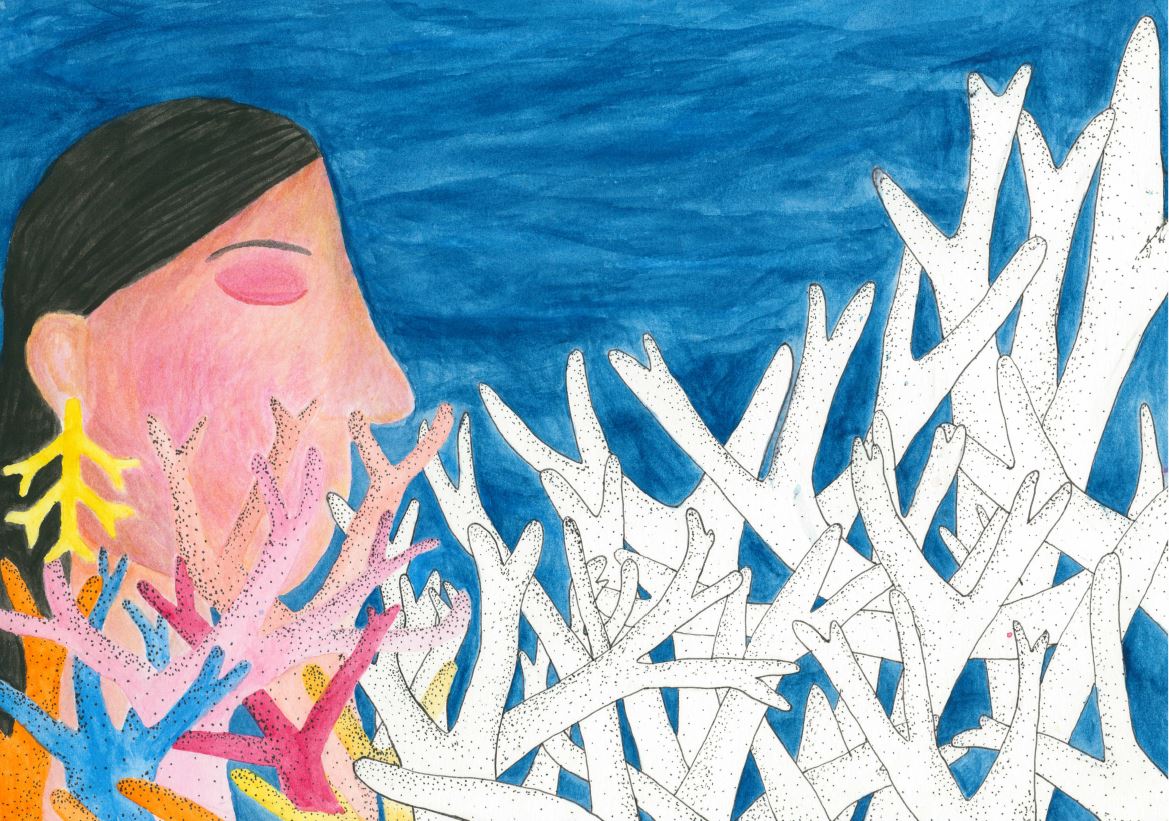
Another section of Fiona’s questionnaire asks what we understand the possible effects of climate change to be. I loosely understand the increase in weather effects etc, but I find myself more confident and more gripped by small stranger details taken from when I thought I would major in microbiology and immunology.
Fungi are responsible for around 2/3 of disease in plants. Symptoms include scab, wilt, wart, rot, curl, smut. Currently, humans have few medical conditions caused by fungi; our bodies are too warm for most to thrive. Those that do affect us largely reside on our outmost layers of skin and hair; systematic disease is generally limited to the already immunocompromised. As temperatures rise, fungi must selectively adapt to temperatures closer to that of the human body. Like animals, fungi they are Eukaryotes, fungi are more difficult to create non-toxic medication against and more difficult for our immune system to recognise and fight.
------------
Pillars of ice hang around the room, a simultaneously familiar and alien imagery. Their drips are irregular and land on different surfaces, differently tuned. I’m reminded of a teacher describing one student’s performance as ‘Chinese water torture’ because of their tempo changes. ‘The torture of it was that you never knew when to expect the water, you would just slowly go mad.’
In a movement of one piece, the three percussionists each kneel before bowls that have been collecting water dripped from the ice sculptures. The percussionists lower their hands into the water. As they slosh and splash out careful rhythms and textures, I think how cold their hands must be.
Melting icecaps are the foremost image for describing climate change, a foreboding image that tends to leave me cold. It’s shifted from figurative to descriptive, like an hourglass describing the boiling of an egg. When the percussionists’ hands breached the water, the music, the melting ice became real. Our bodies were vulnerable.
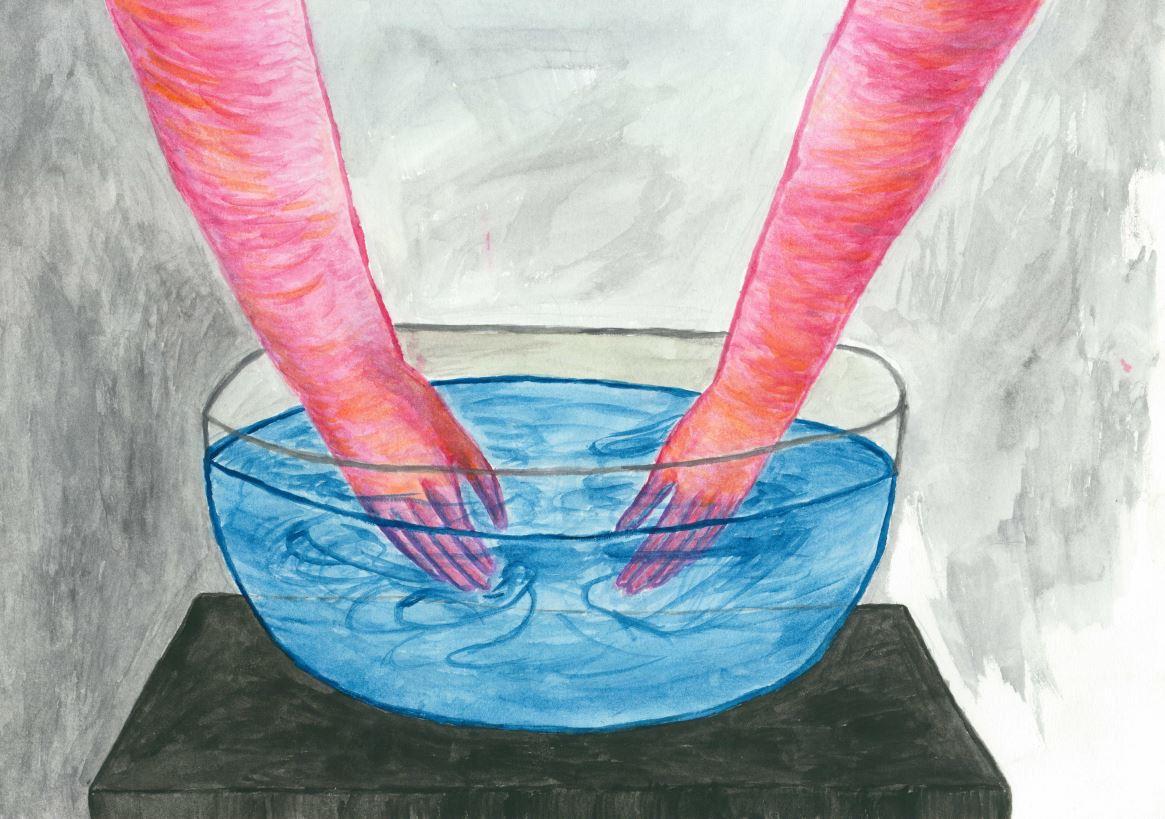
Fiona brings out a square of butcher’s paper and divides it into four. In each section she writes a heading—Private, Consumer, Community, Citizen. We go around the room and each try and list things we do and could do for the climate. We go in circles, each action has a cost and a benefit for the environment and ourselves, when does the cost of producing a Keep Cup outweigh the waste of disposables.
The Consumer section grows faster than anything else. Unlike other environmental issues and responses, like drought and water restrictions, climate change has been largely peddled as a consumer choice. For each product there is a new system to understand and to somehow place in the context of the global environment.
Climate change is hard to talk about because its effects are so wide-ranging and so biblically apocalyptic that methodically describing them becomes both paralysing and mnemonically difficult. Systems interlocking and interdependent that each seem only to feed the flames of our eventual destruction.
------------
The concert culminates in a piece not on climate change itself, but the human response to it, with libretti drawn from letters by scientists originally curated by Joe Duggan in ‘Is This How You Feel’. As the piece progresses, the text slowly becomes less articulate. In the final movement, the singer, along with the rest of the performers, struggle through fragments of the word ‘stuck’. The sounds are guttural, vulnerable and almost upsettingly organic. I emerge from most discussions, meditations, representations of climate change feeling exhausted and powerless. I emerge from the concert feeling connected to that exhaustion and powerlessness. Like the hands in the water, the abstraction leads towards something animate.
